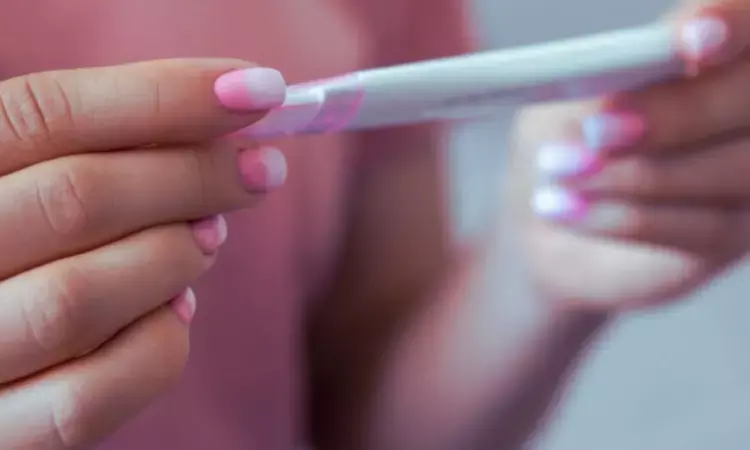- Home
- Medical news & Guidelines
- Anesthesiology
- Cardiology and CTVS
- Critical Care
- Dentistry
- Dermatology
- Diabetes and Endocrinology
- ENT
- Gastroenterology
- Medicine
- Nephrology
- Neurology
- Obstretics-Gynaecology
- Oncology
- Ophthalmology
- Orthopaedics
- Pediatrics-Neonatology
- Psychiatry
- Pulmonology
- Radiology
- Surgery
- Urology
- Laboratory Medicine
- Diet
- Nursing
- Paramedical
- Physiotherapy
- Health news
- Fact Check
- Bone Health Fact Check
- Brain Health Fact Check
- Cancer Related Fact Check
- Child Care Fact Check
- Dental and oral health fact check
- Diabetes and metabolic health fact check
- Diet and Nutrition Fact Check
- Eye and ENT Care Fact Check
- Fitness fact check
- Gut health fact check
- Heart health fact check
- Kidney health fact check
- Medical education fact check
- Men's health fact check
- Respiratory fact check
- Skin and hair care fact check
- Vaccine and Immunization fact check
- Women's health fact check
- AYUSH
- State News
- Andaman and Nicobar Islands
- Andhra Pradesh
- Arunachal Pradesh
- Assam
- Bihar
- Chandigarh
- Chattisgarh
- Dadra and Nagar Haveli
- Daman and Diu
- Delhi
- Goa
- Gujarat
- Haryana
- Himachal Pradesh
- Jammu & Kashmir
- Jharkhand
- Karnataka
- Kerala
- Ladakh
- Lakshadweep
- Madhya Pradesh
- Maharashtra
- Manipur
- Meghalaya
- Mizoram
- Nagaland
- Odisha
- Puducherry
- Punjab
- Rajasthan
- Sikkim
- Tamil Nadu
- Telangana
- Tripura
- Uttar Pradesh
- Uttrakhand
- West Bengal
- Medical Education
- Industry
Unintended Pregnancy After Kidney Transplant Linked to Mycophenolate Exposure, Not Acute Rejection: Study

USA: In kidney transplant recipients, unintended pregnancy was not linked to acute peripartum kidney rejection but was associated with exposure to mycophenolate products, a recent study has found.
"Women with unintended pregnancies were more likely to experience mycophenolate exposure and allograft loss within two years postpartum. However, unintended pregnancy was not associated with acute kidney rejection or overall allograft survival," the researchers wrote in O&G Open.
Unintended pregnancies, which account for about 45% of all pregnancies in the U.S., can lead to significant medical and social challenges, including delays in prenatal care, substance use, and financial burdens. For kidney transplant recipients, unintended pregnancies may pose additional risks for maternal, neonatal, and graft outcomes.
Against the above background, Yalda Afshar, Division of Maternal Fetal Medicine, Department of Obstetrics and Gynecology, David Geffen School of Medicine, University of California, Los Angeles, Los Angeles, CA, and colleagues aimed to identify risk factors, obstetric complications, and allograft outcomes linked to unintended pregnancy following a kidney transplant.
For this purpose, the researchers conducted a retrospective cohort study of pregnancies in women who had undergone kidney transplantation and were enrolled in the Transplant Pregnancy Registry International, with births between 1967 and 2019. The pregnancies were categorized into intended and unintended groups.
The primary outcome was acute kidney rejection during pregnancy or within 6 weeks postpartum. Secondary outcomes included allograft loss, severe maternal morbidity, and neonatal composite morbidity. The study used multivariable logistic regression, Kaplan–Meier curves, and Cox proportional hazards regression models, adjusting for covariates relevant to the allograft function.
Based on the study, the following findings were made:
- Among 1,723 pregnancies in kidney transplant recipients, 1,081 (62.7%) were intended, and 642 (37.3%) were unintended.
- Risk factors for unintended pregnancy included younger age, Black race, nulliparity, chronic hypertension, and transplant from a deceased donor.
- Exposure to mycophenolate products (16.0% versus 5.7%) and termination (4.7% versus 0.4%) were more common in unintended pregnancies.
- Unintended pregnancy was not associated with acute kidney rejection (2.3% versus 0.9%, adjusted odds ratio [AOR] 2.38).
- Unintended pregnancy was independently associated with allograft loss at 2 years from the end of pregnancy (8.1% versus 3.5%, AOR 2.27), but not allograft survival (adjusted hazard ratio 1.22).
- No differences were found in severe maternal morbidity (3.3% versus 3.6%) or neonatal composite morbidity (12.9% versus 14.3%) between intended and unintended pregnancies.
The findings showed that unintended pregnancy was not linked to acute kidney allograft rejection during the peripartum period but was associated with mycophenolate exposure and allograft loss at 2 years postpartum. Social factors contributing to challenges in accessing reproductive care may also affect transplant health.
"Prepregnancy counseling and continuous follow-up for transplant recipients are recommended to reduce unintended pregnancies and improve long-term transplant outcomes," the researchers concluded.
Reference:
Yin, Ophelia MD; Gliwa, Catherine MD; Walia, Anjali BS; Coscia, Lisa RN, BSN; Constantinescu, Serban MD, PhD; Moritz, Michael MD; Sarkar, Monika MD; Irani, Roxanna MD, PhD; Afshar, Yalda MD, PhD. Unintended Pregnancy After Kidney Transplantation: Risk Factors and Associated Obstetric and Allograft Outcomes. O&G Open 1(4):p 040, December 2024. | DOI: 10.1097/og9.0000000000000040
Dr Kamal Kant Kohli-MBBS, DTCD- a chest specialist with more than 30 years of practice and a flair for writing clinical articles, Dr Kamal Kant Kohli joined Medical Dialogues as a Chief Editor of Medical News. Besides writing articles, as an editor, he proofreads and verifies all the medical content published on Medical Dialogues including those coming from journals, studies,medical conferences,guidelines etc. Email: drkohli@medicaldialogues.in. Contact no. 011-43720751


